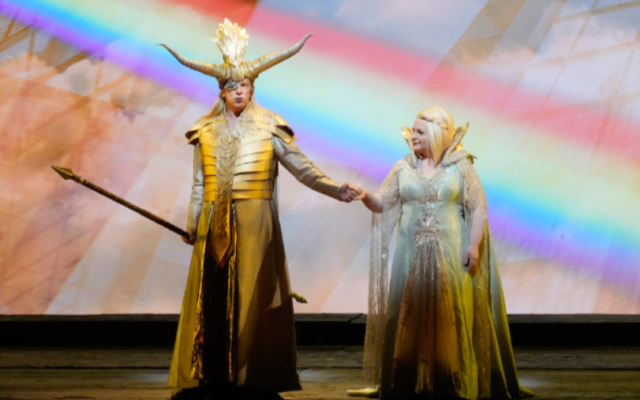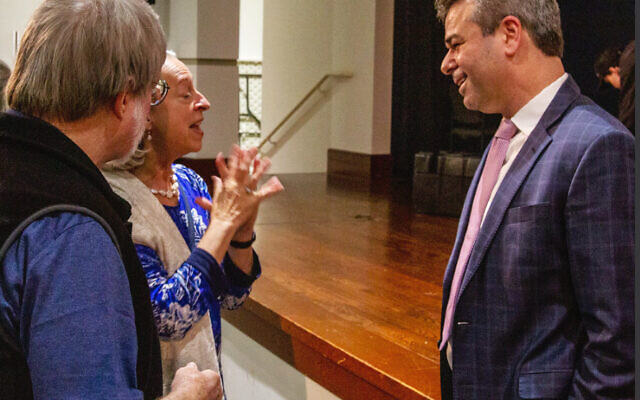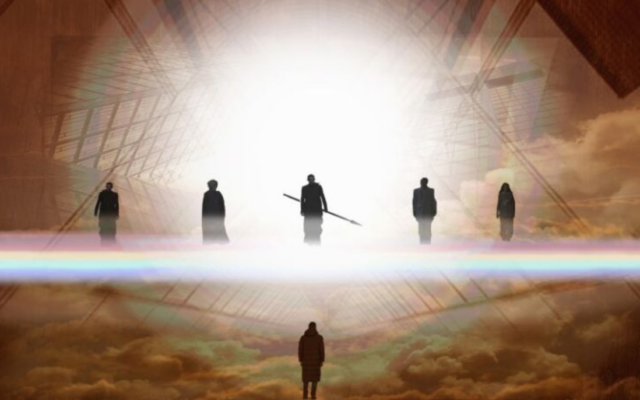Atlanta Opera Production Spotlights Wagner’s Antisemitism
In coordination with the production of “Das Rhinegold,” The Breman Museum hosted a discussion about Richard Wagner’s intense antisemitism.
The Atlanta Opera, under its artistic and executive director, Tomar Zvulun, took a mighty step forward with their production of “Das Rhinegold,” the first opera in Richard Wagner’s four operas that comprise his mythical “Ring of the Nebelung.”
The monumental performance, which was sung in German, with English supertitles above the stage, covers almost three hours and was done without an intermission. The production, which debuted earlier this year at the Dallas Opera, was a first for any opera company in the Southeast. A second opera in the series, “Die Walkure,” is scheduled next spring.
“The Ring Cycle,” which runs more than 15 hours when produced in its entirety, is a dramatic, musical work that stands at the very pinnacle of artistic creation. However, as a statement of Wagner’s social and political views, with its strongly antisemitic overtones, it is considerably less impressive.

Because Wagner’s strident views about Jews were incorporated into Nazi ideology, orchestras and opera companies in Israel have observed an informal ban on Wagner’s music. There have been heated discussions about that ban in the music world both within Israel and abroad, but the ban has remained in place. That, despite a test case that was brought before the Israel’s Supreme Court that ruled a boycott of Wagner could not be legally enforced.
It was to Tomer’s Zvulun’s credit that he initiated a lively discussion about Wagner’s antisemitism at The Breman Museum on April 30, a day after the first performance of “Das Rhinegold.” Zvulun told the Sunday afternoon gathering that he believes that presenting Wagner’s work is an opportunity to examine his controversial ideas.

“As general director of the Atlanta Opera, and as somebody who deeply cares about the art form, I believe that programing something that is problematic and controversial is an opportunity to have those discussions. And I think it’s very important that we recognize that in our culture.”
Still, it is hard to ignore the Nazi legacy attached to Wagner’s music. Although Wagner died five years before Hitler was born, he was the German dictator’s favorite composer. Hitler spent each summer during the Beyareth Festival as an honored guest, some say lover, of Winifred Wagner. She was the wife of Wagner’s grandson and the woman who ran the festival during the dozen years in which the Nazis dominated German life. He was deeply impressed not only by Wagner’s music but by the composer’s antisemitic screed, first published in 1850, called “Jewishness in Music” that called for the elimination of Jews from German society.
In terms that sound shocking today, he charged that Jews were cultural parasites, feeding off the artistic creations of non-Jews. He wrote that “The Jew has never had an art of his own.”
Much of his music provided a soundtrack to accompany those murderous years and it was said that it was played for the enjoyment of SS officers by orchestras composed of inmates in the German death camps.
In a Wagner family history published in 2013, “Twilight of the Wagners,” Wagner’s great-grandson, Gottfried Wagner, questioned just how much distance the family had put between themselves and their Nazi past. He charged that his family has failed to fully separate themselves from Wagner’s antisemitic ideas and the family’s “dark past.”
“The book is an attempt by a German and a member of the Wagner family,” the great-grandson said in a radio interview, “to reflect on the individual responsibility themselves, and of my generation and future generations after Hitler.”
For the Israeli-born Zvulun, the Wagner productions caps a decade of determination to raise the sights for the local opera company. He would not have been able to mount such an ambitious production if it had not first put in place a strong commercial and artistic structure to support it.
In “Das Rhinegold,” he has assembled a large and strong cast, led by the veteran bass-baritone Greer Grimsley as Wotan, the ruler of the gods of Valhalla. For the colorful, dramatic staging, he has called upon his frequent production collaborator, Erhard Rom, whose imaginative electronic projections mostly stand in for the more elaborate scenery of traditional productions, such as the one done at The Metropolitan Opera four years ago and at the Wagner’s 19th Century Bayreuth Festival Theater.
Despite his accomplishments in this landmark production, Tomer Zvulun still has an ambiguous relationship with the composer.
“Every time that I listen to his music, it strikes me with that complexity, that ambiguity of somebody who could understand human nature in such a profound way. How does somebody like that be so myopic, be such a misanthrope and such a genius at the same time?”




comments